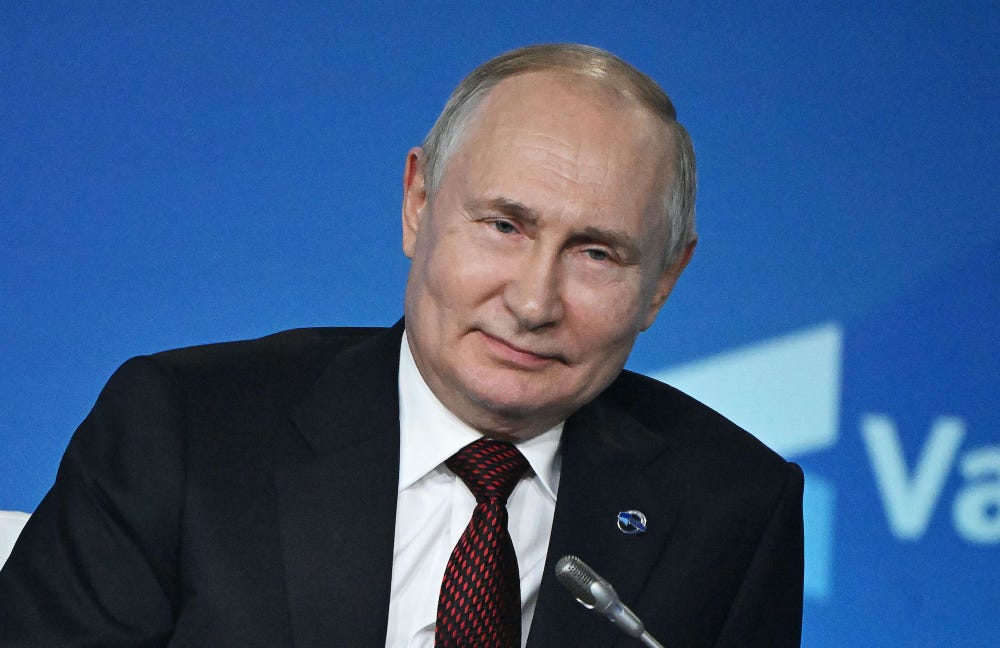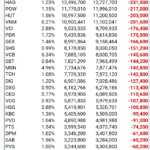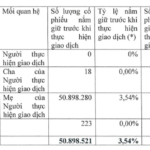According to Bloomberg, this means that the energy powerhouse’s oil revenue has increased by over 80% compared to a year ago. Specifically, taxes on crude oil and petroleum products have more than doubled from the same period.
Russia’s soaring oil revenue is particularly noteworthy as the country continues to face widespread Western sanctions related to the conflict in Ukraine, which has now entered its third year.

Russian President Vladimir Putin attends a plenary session of the Valdai International Discussion Club in Sochi, Russia, on October 5, 2023. Photo: BI
How does Russia make money from oil?
According to Bloomberg, Russia’s soaring revenue in February is due to increased taxes on domestic oil producers.
Russia already had a mechanism that allows for higher taxation of oil producers, but they had not previously utilized it. However, Russia introduced a price floor for oil sales in January and started collecting taxes in February, Bloomberg reported on March 1, citing a letter from the Russian Federal Tax Service.
Moscow’s decision to introduce a price floor came after Western sanctions caused a decline in the price of Russia’s leading Urals crude.
According to Business Insider, Russia is an energy powerhouse, with one-third of its revenue coming from oil and gas. The European Union (EU) – Russia’s largest customer before the conflict with Ukraine – has been trying to reduce its dependence on Russian gas for the past two years.
The ceiling price of $60 per barrel for Russia’s oil set by the Group of Seven (G7) leading industrialized nations also limited prices and revenue from Russia’s oil.
However, Business Insider reports that Russia has found ways to navigate around the price limitations and sanctions by looking eastward to customers like India and China.
Russia has also sought to circumvent price limitations and sanctions by using a fleet of outdated “phantom” ships and by using intermediaries to “launder” its oil.
Oil revenue is also used for social spending
According to Business Insider, the West is tightening trade restrictions on Russia in order to force Moscow to end the conflict in Ukraine. In doing so, the US and the EU have imposed controversial secondary sanctions against entities outside their jurisdiction.
These actions are causing Russia to be wary: Dmitry Peskov, Kremlin spokesman, admitted to having issues with Chinese bank transactions in February.
However, according to Business Insider, President Vladimir Putin’s government needs to continue showing resolve as Russian citizens may become impatient with the prolonged conflict.
Russia’s oil revenue not only funds the war in Ukraine but is also used for social spending that Putin promised to Russian citizens before he ran for re-election as President later this month.
The Russian presidential election is scheduled to take place over three days from March 15th to 17th. Business Insider predicts that Putin is likely to secure a victory against his three opponents.





































